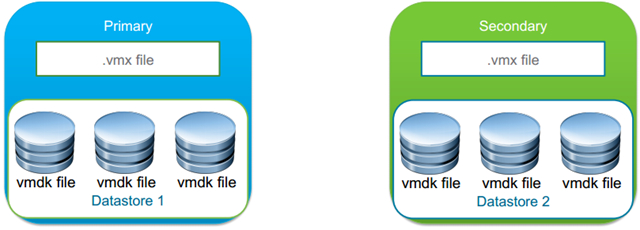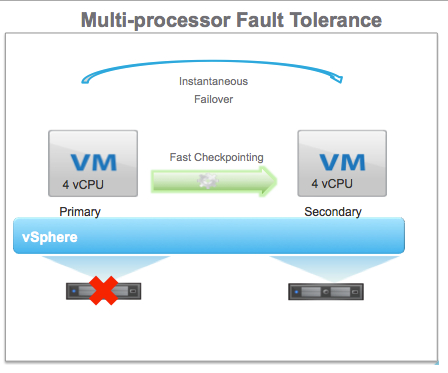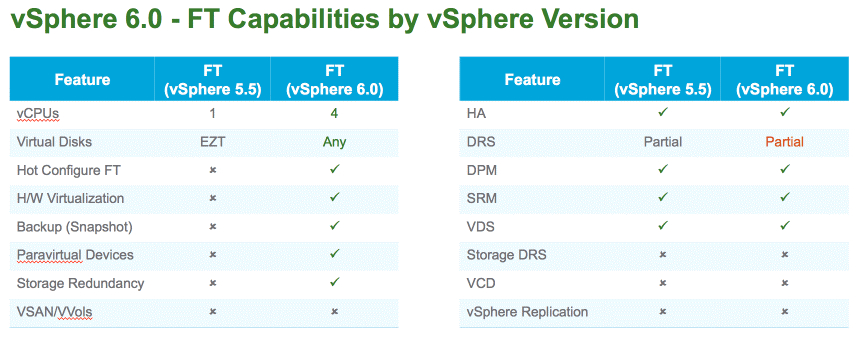This post covers Fault Tolerance (FT) improvements available in vSphere 6. I am so happy that at last Fault Tolerance (vSMP supported) can be used to protect the business critical systems. Just for a quick reminder what are limitations of Fault Tolerance available in vSphere 4.0-5.5:
- Only 1 vCPU per FT virtual machine.
- Shared storage required.
- Host CPU’s must be VMware FT capable and belong to the same processor model family. (+-400Mhz)
- All ESX hosts in te VMware HA cluster have identical ESX versions and patch levels.
- Virtual machines must be stored in virtual RDM or virtual machine disk (VMDK) files that are thick provisioned.
Are you a VMware newbie? No problem, please follow my post about Business Continuity provided by native VMware features.
So what's going to be changed in Fault Tolerance in vSphere 6? A lot and also very important features are as follow:
- Up to 4 vCPUs (vSMP) and 64GB RAM VM.
- Fast Check-Pointing has replaced the “Record-Replay”.
- Supports all Virtual Disk Type like Thick or Thin Provisioned.
- Backup support with snapshots through VADP such NetBackup or vSphere Data Protection.
- Supports vMotion of both Primary and Secondary Virtual Machine.
- Storage redundancy such VDDK copies on separate datastores.
- Para Virtualisation Devices are supported.
Max 4 Protected VMs or 8 vCPU per ESXi host (it depends on which reaches first)
Ok, we have discussed new features of Fault Tolerance in vSphere 6. What about requirements? There are as follow:
- 10GB Network link for Fault Tolerance must be used
- All machines protected are on a host running the same version of vSphere.
- Dedicated virtual network VMkernel portgroups must be configured for FT logging.
- 10-30% network overhead increase
As a conclusion, please follow Fault Tolerance comparison available in vSphere 5.5 and vSphere 6:
At last, VMware provides a really good feature with RPO ~0 and RTO ~0 to be used for protection of Business Critical Systems (>1vCPU).

